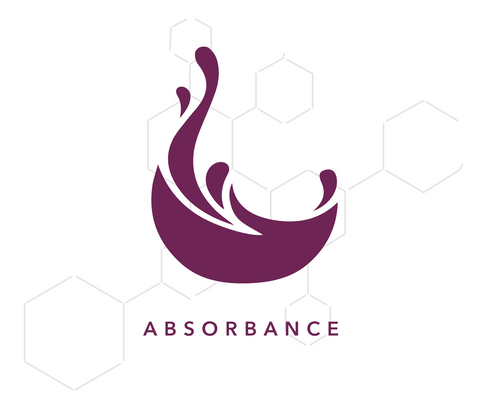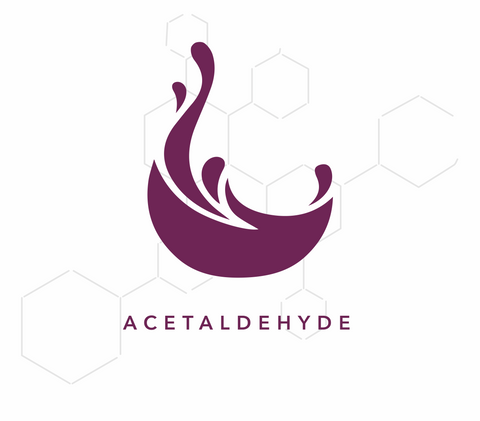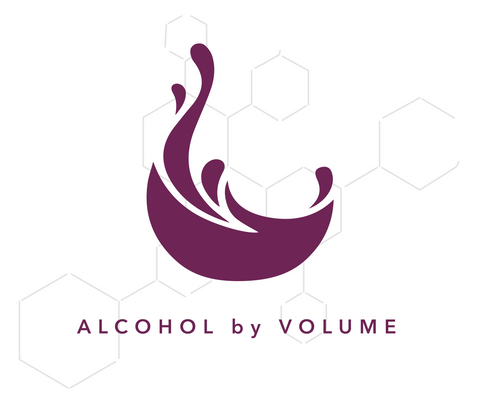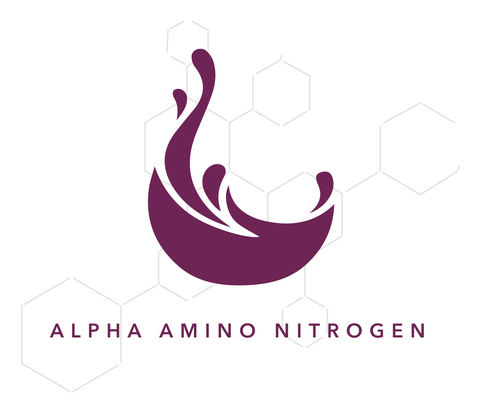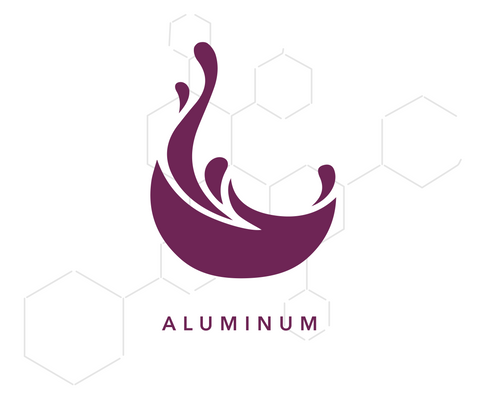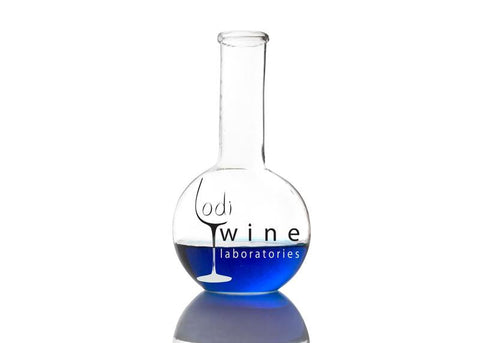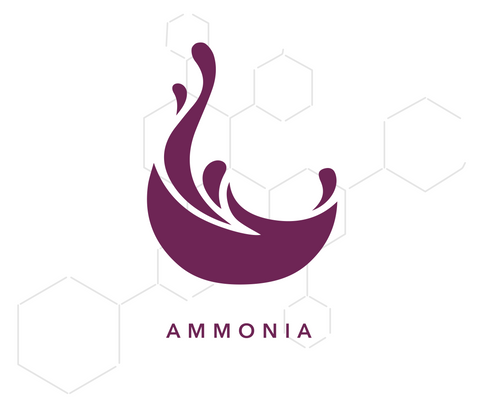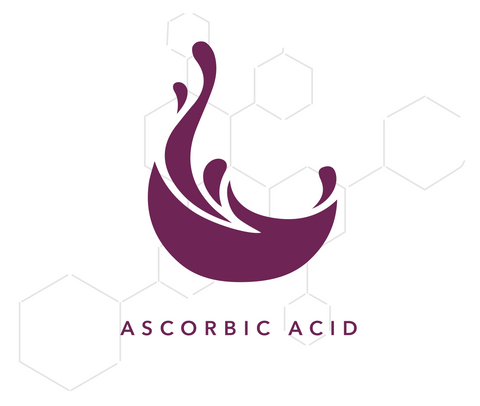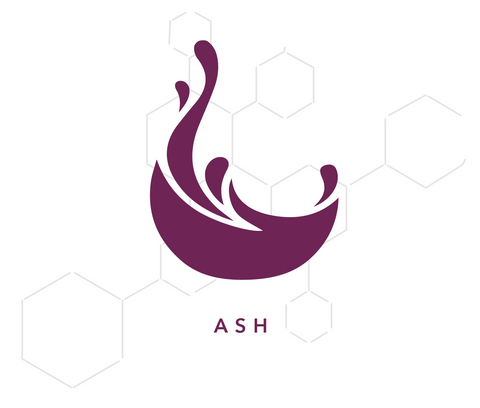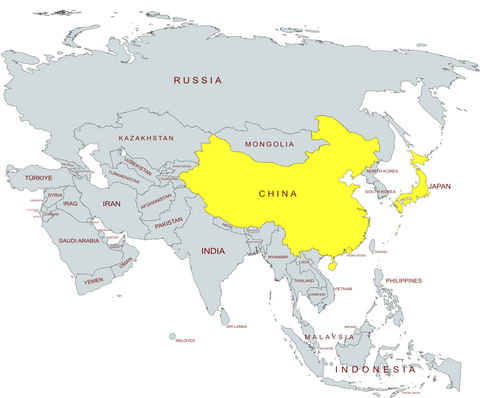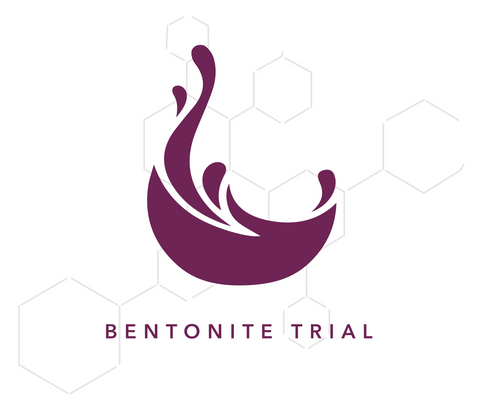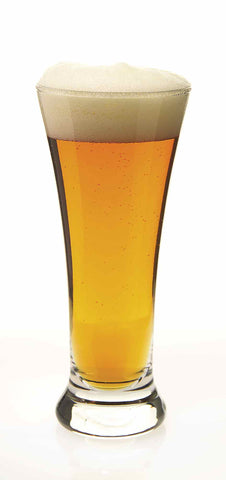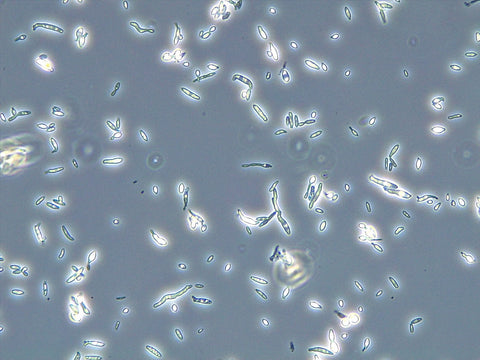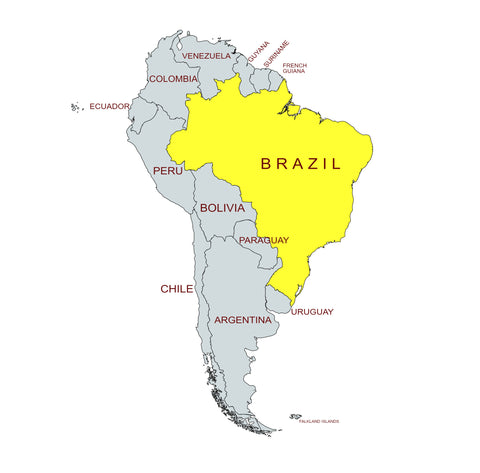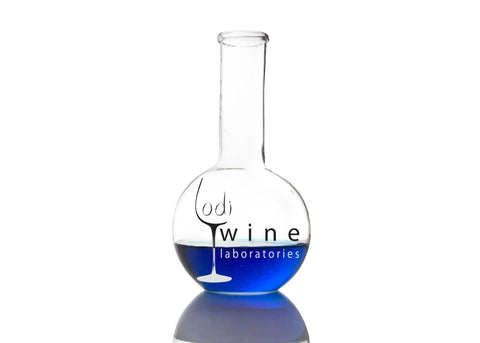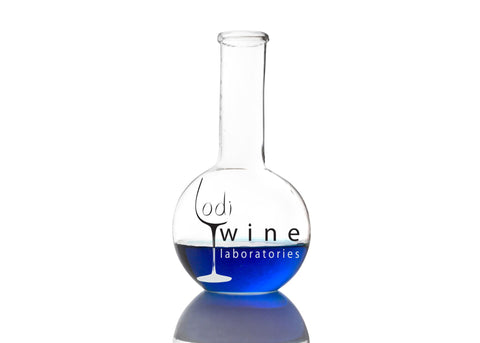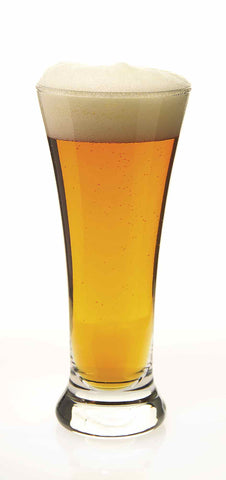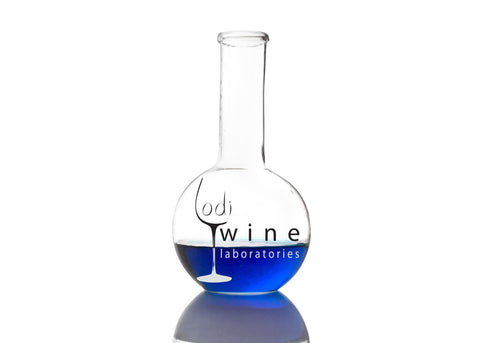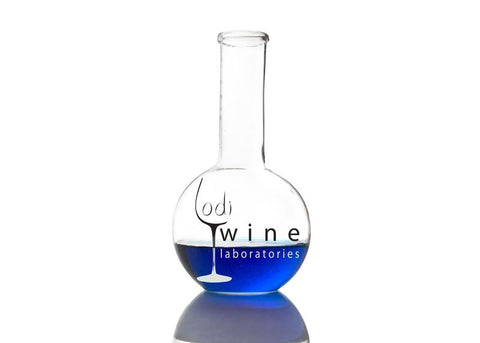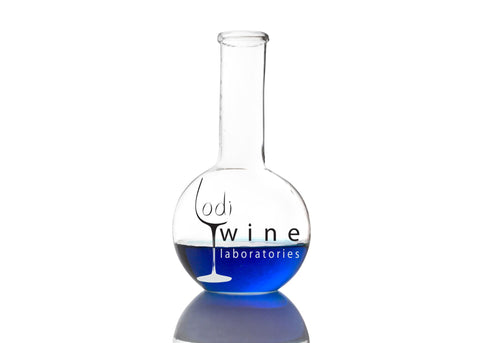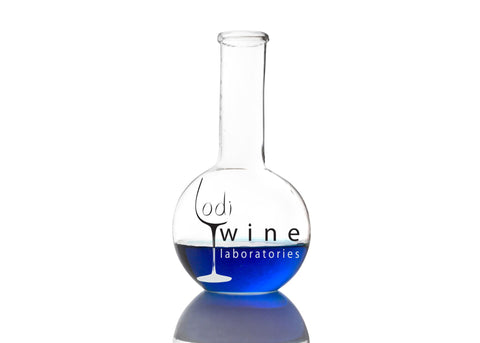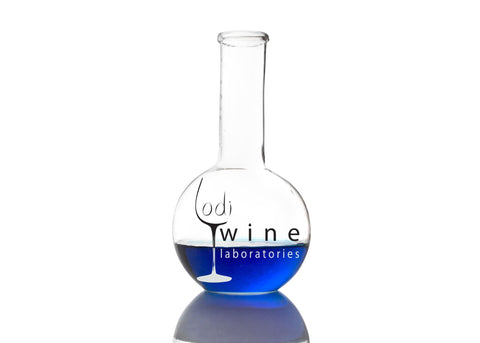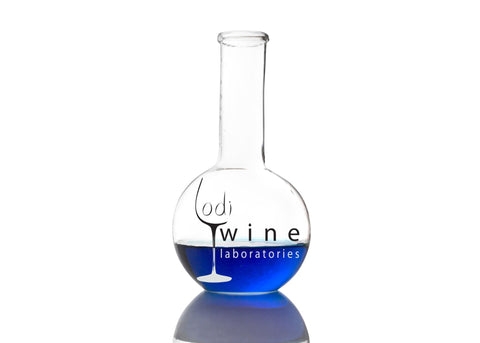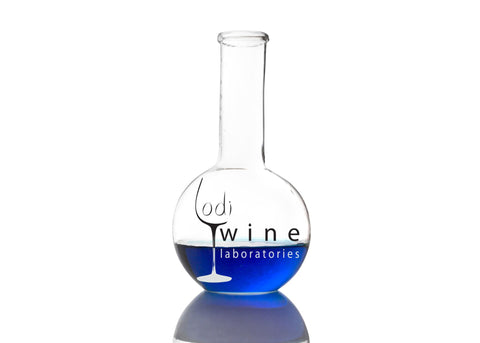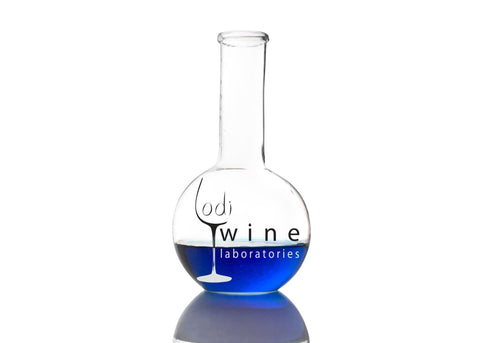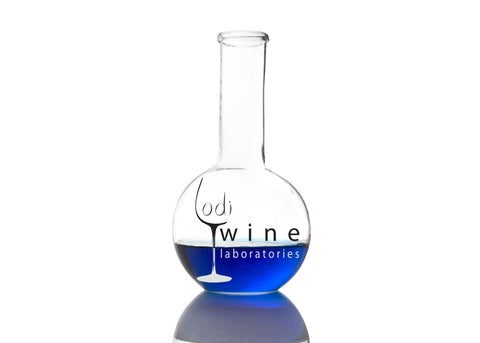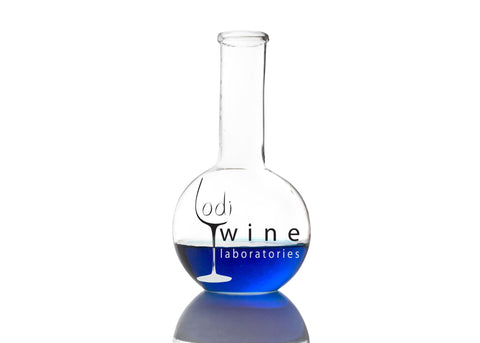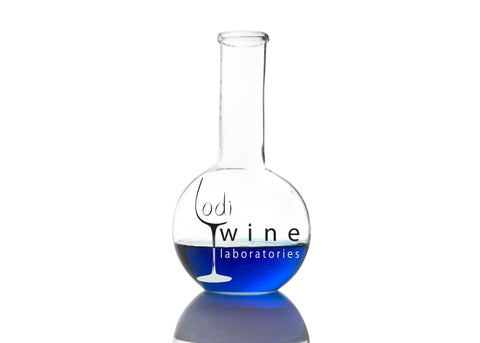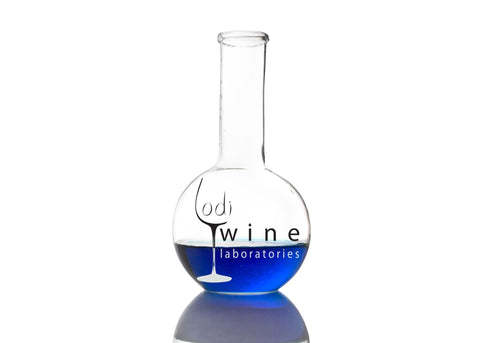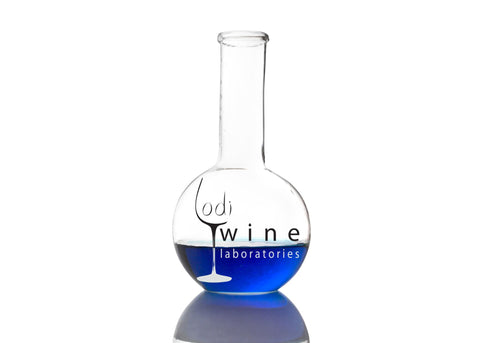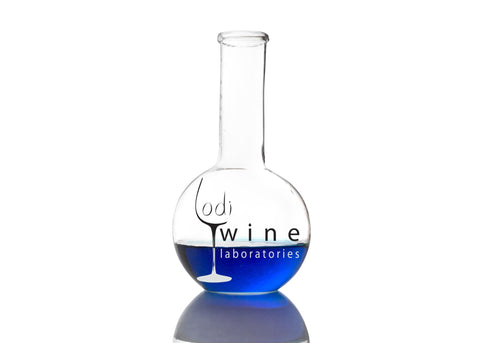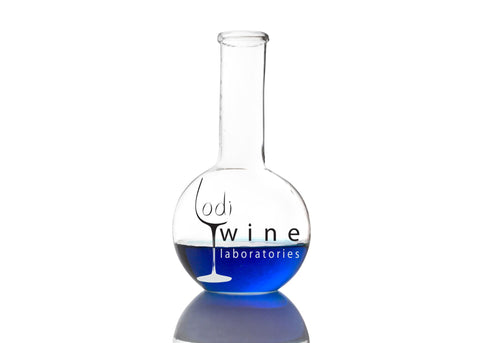Analysis
Please Note
-
Absorbance
- Spectroscopy
- |
- 1-2 business days
- |
- 50 mL
$22.00
Visit product page →The measurement of absorbance is used to determine the amount of color that is found in solution.
280 nm is used to determine the total phenolic concentration in a wine.
420 nm is used to determine the amount of yellow and brown color in a wine.
520 nm is used to determine the amount of red color in a wine.
430 nm is used used to determine beer color by converting to the Standard Reference Method (SRM) System. The scale is generally from 2 to 40+ depending on the beer style.
Minimum Volume Required: 50mL
Includes
Absorbance
(Units: AU, Technique: Spectroscopy) -
Acetaldehyde
- Sequential Analyzer
- |
- 24 hours
- |
- 50 mL
$132.00
Visit product page →Acetaldehyde can be produced by yeast and acetic acid bacteria by the oxidation of ethanol. It is typically associated with a sherry or rotten apple aroma and is considered undesirable at elevated levels. Sensory threshold in wine is typically between 100-125 mg/L. SO2 will bind with acetaldehyde to help reduce unwanted aromas.
Minimum Volume Required: 50mL
Includes
Acetaldehyde
(Units: mg/L, Technique: Sequential Analyzer) -
Alcohol by Volume
- NIR
- |
- 24 hours
- |
- 50 mL
$30.00
Visit product page →Alcohol (ethanol) is the main product of primary fermentation and a critical measurement in the determination of tax rates, flavors and microbial stability. Additionally, the measurement of alcohol is useful in advance of malolactic fermentation to determine the correct bacteria strain selection.
Minimum Volume Required: 50mL
Includes
Alcohol
(Units: % vol, Technique: NIR) -
Alpha Amino Nitrogen (N-OPA)
- Sequential Analyzer
- |
- Same Day
- |
- 50 mL
$26.00
Visit product page →N-OPA refers to one of the two prominent forms (along with NH3) of nitrogen that serve as yeast nutrients. The determination of the enzyme of the reaction or N-OPA is commonly measured along with NH3 to determine YAN (Yeast Assimilable Nitrogen).
Minimum Volume Required: 50mL
Includes
Alpha Amino Nitrogen (N-OPA)
(Units: g/L, Technique: Sequential Analyzer) -
Aluminum
- MP-AES
- |
- 24 hours
- |
- 50 mL
$32.00
Visit product page →The measurement of aluminum present in wine or juice.
Minimum Volume Required: 50mL
Includes
Aluminum
(Units: mg/L, Technique: MP-AES) -
Aluminum Packaging Panel
- Various
- |
- 1-2 days
- |
- 250mL
$275.00
Visit product page →This panel is designed to evaluate suitability of wines for aluminum packaging, and is based on recommendations from major industry suppliers, please consult with your provider to confirm what specifications they require.
Minimum Volume Requirements: 375mL
Includes
Ethanol (%v/v)Chloride (as sodium chloride) - this test is subcontractedFree Sulfur Dioxide (SO2)Molecular Sulfur Dioxide (SO2)Total Sulfur Dioxide (SO2)pHOxygen - Dissolved O2 -
Ammonia
- Sequential Analyzer
- |
- Same Day
- |
- 50 mL
$26.00
Visit product page →Ammonia refers to one of the two prominent forms (along with N-OPA) of nitrogen that serve as yeast nutrients. The determination of ammonia is commonly measured along with N-OPA to determine YAN (Yeast Assimilable Nitrogen).
Minimum Volume Required: 50mL
Includes
Ammonia
(Units: mg/L, Technique: Sequential Analyzer) -
Ascorbic Acid (Vitamin C)
- Sequential Analyzer
- |
- 24 hours
- |
- 50 mL
$50.00
Visit product page →Ascorbic acid is used in wine as an anti-oxidant, protecting color from oxidation and possible browning.
Minimum Volume Required: 50mL
Includes
Ascorbic Acid
(Units: g/L, Technique: Sequential Analyzer) -
Ash
- Manual
- |
- 2 business days
- |
- 50 mL
$43.00
Visit product page →The measurement of residue remaining after combustion at 500-550°C. Additionally, ash measurements are used to calculate nutritional analytes.
Minimum Volume Required: 50mL
Includes
Ash
(Units: g/100mL, Technique: Combustion 500-550°C) -
Asian Pacific Export Panel
- Various
- |
- 2 days
- |
- Ready for Market Package
$200.00
Visit product page →This comprehensive panel is made up of analyses that are most often requested by countries within the Pacific Rim region. Always check with your exporter as their requirements may differ.
Note: Lodi Wine Labs export analysis requires a ready for market package. Full labeling and complete packaging on the bottle is required.
Includes
Alcohol by Volume
(Units: %vol, Technique: NIR)pH Analysis
(Units: pH, Technique: Manual)Titratable Acidity (TA)
(Units: g/L, Technique: Auto-Titration)Volatile Acidity VA (as Acetic Acid)
(Units: g/L, Technique: Sequential Analyzer)Total Sugar
(Units: g/L, Technique: Sequential Analyzer)Total Dry Extract
(Units: g/L, Technique: Densitometry)Free & Total Sulfur Dioxide (SO2)
(Units: mg/L, Technique: Sequential Analyzer)Molecular Sulfur Dioxide (SO2)
(Units: mg/L, Technique: Calculation)Sorbic Acid
(Units: g/L, Technique: Distillation/Spectroscopy)Volume per Bottle
(Units: mL, Technique: Densitometry/Manual) -
Bentonite Fining Trial
- Incubation + Turbidimeter
- |
- 2 business days
- |
- 375 mL
$85.00
Visit product page →A Bentonite Trial is a highly effective method to develop a heat stable product. It is designed to determine the appropriate addition of bentonite for removal of proteins that can cause a visible haze or flocculation. Several addition rates are made followed by a heat stability test of the treated samples. These results will identify the lowest addition rate of bentonite that will be required to heat stabilize the wine.
Minimum Volume Required: 375mL
Includes
Bentonite Trial
(Units: NTU, Technique: Incubation + TurbidimeterNote : We use KWK Bentonite in dosage rates of 2#, 4#, 6#, 8# and 10# for standard heat stability trials.
If you are using a different bentonite, please send 10 grams with your sample for lab preparation of the slurry.
If you would like a specific range of dosage rates, please note this on the sample label.
-
Bitterness
- Spectroscopy
- |
- 24 hours
- |
- 50 mL
$45.00
Visit product page →The measurement of International Bitterness Units for beer flavor profile.
Minimum Volume Required: 50mL
Includes
Bitterness
(Units: IBUs, Technique: Spectroscopy) -
Bottle Sterility Plating
- Filter Plating
- |
- 7-10 days
- |
- 750 mL
$45.00
Visit product page →Bottle sterility plating is used to ensure the integrity of filtration as well as to ensure sterility throughout filtration and bottling.
Minimum Volume Required: One bottle
Includes
Bottle Sterility Plating
(Units: CFU per 250mL, Technique: Filter Plating) -
Brazil Export Panel
- Various
- |
- 5-7 days
- |
- Ready for Market Package
$400.00
Visit product page →This comprehensive panel is made up of analyses that are most often requested by Brazil. Always check with your exporter as their requirements may differ.
Note: Lodi Wine Labs export analysis requires a ready for market package. Full labeling and complete packaging on the bottle is required.
Includes
Alcohol by Volume
(Units: % vol, Technique: NIR)Methanol
(Units: mg/L, Technique: Gas Chromatography)Titratable Acidity (TA)
(Units: g/L, Technique: Auto-Titration)Titratable Acidity (TA) reported in meq/L
(Units: g/L, Technique: Auto-Titration)Volatile Acidity VA (as Acetic Acid)
(Units: g/L, Technique: Sequential Analyzer)Volatile Acidity VA (as Acetic Acid) reported in meq/L
(Units: g/L, Technique: Sequential Analyzer)Total Sugar
(Units: g/L, Technique: Sequential Analyzer)Total Dry Extract
(Units: g/L, Technique: Densitometry)Sulfates as Potassium Sulfate
(Units: g/L, Technique: Ion Chromatography)Carbon Dioxide
(Units: mg/L, Technique: Manual) -
Brettanomyces Analysis (4-EP/4-EG)
- GC-MS
- |
- 48 hours
- |
- 120 mL
$90.00
Visit product page →4-Ethylphenol and 4-Ethylguaiacol (4-EP and 4-EG) are the metabolites or chemical markers that indicate activity of Brettanomyces and impact the sensory characters of a wine. 4-EP produces aromas generally describes as “barnyard” or “band-aid” while 4-EG can be medicinal or smoky.
Note: At this time, 4-EP/4-EG analysis will be subcontracted.
Minimum Volume Required: 50mL
Includes
4-Ethylguaiacol
(Units: ug/L, Technique: GC-MS)
4-Ethylphenol
(Units: ug/L, Technique: GC-MS) -
Brettanomyces Plating
- Filter Plating
- |
- 7-10 days
- |
- 100 mL
$40.00
Visit product page →Plating on selective media to determine the presence and quantity of brettanomyces in a sample. Growth is apparent at five to seven days; final results at seven days.
Minimum Volume Required: 100mL
Includes
Brettanomyces Plating
(Units: CFU per 100mL, Technique: Filter Plating) -
Brewing Water Panel
- Various
- |
- 48 hours
- |
- 120 mL
$90.00
Visit product page →A set of routine analyses for the brewer. The composition of your water will affect fermentation, flavor, and aroma.
Minimum Volume Required: 100mL
Includes
pH(Units: g/L, Technique: Manual)
Calcium
(Units: g/L, Technique: MP-AES)Magnesium
(Units: g/L, Technique: MP-AES)Sodium
(Units: g/L, Technique: MP-AES)Total Hardness as Calcium Carbonate
(Units: g/L, Technique: Calculation)Chloride
(Units: g/L, Technique: Enzymatic)Sulfate
(Units: g/L, Technique: Enzymatic)Total Alkalinity
(Units: g/L, Technique: Enzymatic)Bicarbonate
(Units: g/L, Technique: Calculation) -
Brix by Densitometry
- Densitometry
- |
- 24 hours; Juice (Same Day)
- |
- 50 mL
$29.00
Visit product page →Measurement of the approximate sugar concentration in juice and must reported as percentage by weight. One gram of sucrose in 100mL of solution is considered a degree Brix. (°Brix)
Minimum Volume Required: 50mL
Includes
°Brix
(Units: Degrees, Technique: Densitometry) -
Brix by Digital Refractometer
- Digital Refractometer
- |
- 24 hours; Juice (Same Day)
- |
- 50 mL
$15.00
Visit product page →Measurement of the approximate sugar concentration in juice and must reported as percentage by weight. One gram of sucrose in 100mL of solution is considered a degree Brix. (°Brix)
Minimum Volume Required: 50mL
Includes
°Brix
(Units: Degrees, Technique: Digital Refractometer) -
Calcium
- MP-AES
- |
- 24 hours
- |
- 50 mL
$35.00
Visit product page →The measurement of calcium present in wine or juice. Along with magnesium, calcium measurements are used to determine water hardness which is an analyte included in our water panels.
Minimum Volume Required: 50mL
Includes
Calcium
(Units: mg/L, Technique: MP-AES) -
Carbon Dioxide (CO2)
- Manual
- |
- 24 hours
- |
- 120 mL
$40.00
Visit product page →Dissolved carbon dioxide is the measurement of the amount of carbon dioxide gas that is dissolved in a liquid.
Minimum Volume Required: 375mL
Includes
Dissolved Carbon Dioxide (CO2)
(Units: mg/L, Technique: Manual) -
Cellar Panel
- Various
- |
- 24 hours
- |
- 50 mL
$58.00
Visit product page →A routine set of analysis useful for determining critical properties during the aging and cellaring process.
Minimum Volume Required: 50mL
Includes
pH Analysis
(Units: pH, Technique: Manual)Titratable Acidity (TA)
(Units: g/L, Technique: Auto-Titration)Volatile Acidity VA (as Acetic Acid)
(Units: g/L, Technique: Sequential Analyzer)Free & Total Sulfur Dioxide (SO2)
(Units: ppm, Technique: Sequential Analyzer)Molecular Sulfur Dioxide (SO2)
(Units: ppm, Technique: Calculation) -
Chloride (as sodium chloride)
- Gas Chromatography
- |
- 7 days
- |
- 120 mL
$115.99
Visit product page →This is a subcontracted analysis.
-
Citric Acid
- Sequential Analyzer
- |
- 24 hours
- |
- 50 mL
$45.00
Visit product page →One of several organic acids, citric acid may be used to adjust acidity. Citric acid testing is often performed to meet regulatory or export requirements.
Minimum Volume Required: 50mL
Includes
Citric Acid
(Units: g/L, Technique: Sequential Analyzer) -
CMC Panel
- Conductivity
- |
- 2-3 days
- |
- 750 mL
$150.00
Visit product page →A carboxymethylcellulose (CMC) Panel is a highly effective method to develop a cold stable product. It is designed to determine the proper addition of CMC to inhibit tartrate crystallization. Initial cold stability testing is performed followed by suitable addition rates to identify the lowest addition rate that is considered acceptable.
Minimum Volume Required: 750mL
Includes
CMC Panel, including heat stability of treated samples
(Units: uS, NTU; Technique: Conductivity, Incubation + Turbidimeter)Note : Lodi Wine Labs uses Celstab for standard cold stability trials.
If you are using a different product for cold stabilization, please send 50mL with your sample for lab use.
If you would like a specific range of dosage rates, please note this on the sample label.
-
Cobalt
- MP-AES
- |
- 24 hours
- |
- 50 mL
$32.00
Visit product page →The measurement of cobalt present in wine or juice.
Minimum Volume Required: 50mL
Includes
Cobalt
(Units: mg/L, Technique: MP-AES) -
Cold Stability - Freeze/Thaw
- Visual
- |
- 72 hours
- |
- 120 mL
$20.00
Visit product page →This test involves 0.45 micron filtration of a sample followed by freezing for 24 hours. The solution is then thawed prior to inspecting for any crystalline tartrate precipitation. If no crystalline tartrate deposits are observed, it is considered cold-stable and expressed as a "pass."
Minimum Volume Required: 120mL
IncludesCold Stability
(Units: Pass/Fail, Technique: Visual) -
Cold Stability - UC Davis Modified Mini Contact
- Conductivity
- |
- 24 hours
- |
- 120 mL
$42.00
Visit product page →The UC Davis Modified Mini Contact is a test that measures the change of conductivity over a 30-minute period at a test temperature of zero degrees Celsius. Wines are generally considered cold stable with a conductivity drop of <3%.
Minimum Volume Required: 120mL
Includes
Cold Stability
(Units: uS, Technique: Conductivity) -
Copper
- MP-AES
- |
- 24 hours
- |
- 50 mL
$35.00
Visit product page →The measurement of copper in a sample of wine, juice, water or beer. Residual copper testing is useful if copper sulfate was added to a wine or if wine had contact with copper metal.
Minimum Volume Required: 50mL
Includes
Copper
(Units: mg/L, Technique: MP-AES) -
Copper Trial - Sulfide Fining
- Sensory
- |
- 24 hours
- |
- 750 mL
$80.00
Visit product page →A copper trial is a sulfide fining trial to assist in determining the addition rate of copper sulfate (CuSO4) and/or ascorbic acid for the removal of sulfur off odors. After a predetermined range of addition rates, sensory analysis is performed to identify the lowest addition rate with minimization of off odors.
Minimum Volume Required: 750mL
IncludesRecommended Copper Sulfate Addition
(Technique: Sensory) -
Density
- Densitometry
- |
- 24 hours
- |
- 50 mL
$30.00
Visit product page →Measurement of the mass per volume of wine or juice.
Minimum Volume Required: 50mL
Includes
Density
(Units: mg/L, Technique: Densitometry) -
Fining Trial
- Sensory
- |
- Various
- |
- 750 mL
$80.00
Visit product page →Before using a fining product, it is common to conduct a trial to maximize the effect of the product and ensure the proper addition rate. Various addition rates are made here in the lab followed by sensory evaluation and recommendation.
Minimum Volume Required: Varied, at least 750mL
Includes
Fining trial and recommendation
(Various methods) -
Free & Total Sulfur Dioxide (SO2) - Sequential Analyzer
- Sequential Analyzer
- |
- 24 hours
- |
- 50 mL
$38.00
Visit product page →Sulfur dioxide is used to manage microbial stability and to prevent oxidation. The measurement of free sulfur dioxide is used to determine the amount of SO2 that is not bound to other compounds in juice and wine. The measurement of total SO2 is the determination of both the free and bound forms of SO2 in juice and wine.
Minimum Volume Required: 50mL
Includes
Free and Total Sulfur Dioxide (SO2)
(Units: mg/L, Technique: Sequential Analyzer)
- Previous
- Page 1 of 3
- Next

